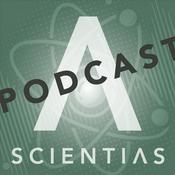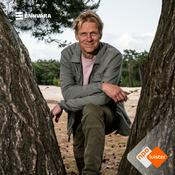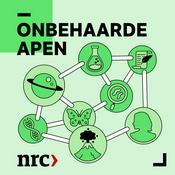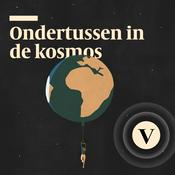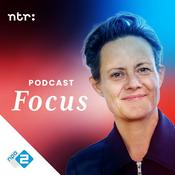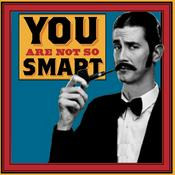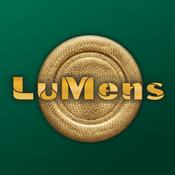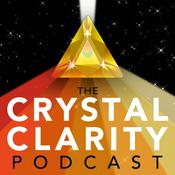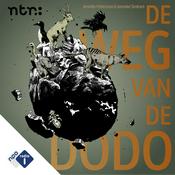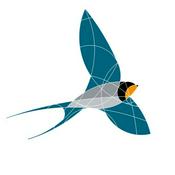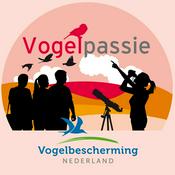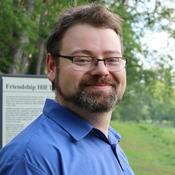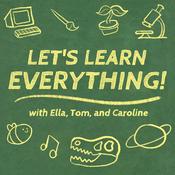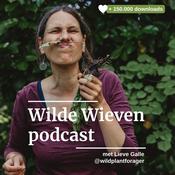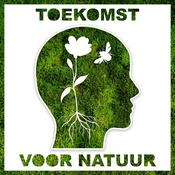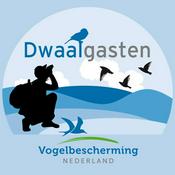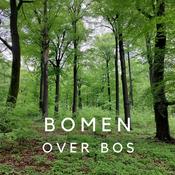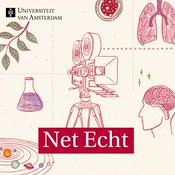Anthropology on Air
Department of Social Anthropology, University of Bergen
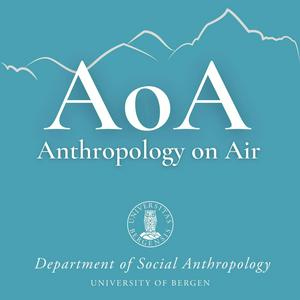
Nieuwste aflevering
24 afleveringen
“Rurality 2.0”: How City Migrants are Reshaping Norway’s Rural Regions with Tom Bratrud
08-12-2025 | 1 u. 11 Min.In today’s episode, we talk to Tom Bratrud about his ongoing, long-term work with city-dwellers who migrate to rural parts of Norway. This research forms the basis of Tom’s forthcoming book project, which has the working title Rurality 2.0: Redefining Urban-Rural Divides in the Mountains of Norway.
Tom Bratrud is Associate Professor in Social Anthropology at the University of Bergen. His research investigates social life, political dynamics, value(es), religion/worldviews, emerging technologies, environmental issues and rural-urban relations. Prior to his work in his home valley of Valdres in southern Norway, he conducted extensive ethnographic fieldwork in Vanuatu in the South-Pacific—resulting in his first monograph Fire on the Island: Fear, Hope and a Christian Revival in Vanuatu (Berghahn 2022).
Tom is the co-convenor of European Association of Social Anthropology (EASA)’s Future Anthropologies Network. Just after we spoke, Tom was also awarded the inaugural Thomas Hylland Eriksen Memorial Prize, presented during the Norwegian Anthropological Association’s Conference in Oslo at the end of October 2025. In explaining their decision, the jury commented that Bratrud “unites global and local perspectives and shows how social anthropological approach and methodology become a key to understanding ongoing change.”
Tom Bratrud is Associate Professor of Social Anthropology at the University of Bergen.
Tom Bratrud receives the Thomas Hylland Eriksen Memorial Prize.
Learn more about your ad choices. Visit megaphone.fm/adchoices- In this episode, we speak with Alessandro Rippa about amber – a fossilised resin that not only allow us a glimpse into prehistoric lifeforms and climatic conditions millions of years ago but also works as an entry point into understanding current political, scientific, and commercial frictions.
Alessandro is Associate Professor at the Department of Social Anthropology, at the University of Oslo, where he leads the ERC Starting Grant project called “Amber Worlds: A Geological Anthropology for the Anthropocene”. He has conducted extensive fieldwork along China’s borderlands, and more recently in his home region in the Italian Alps, and he has published on themes such as infrastructure development, borders, ‘road animism’, human-environment relations, re-wilding, hunting, and heritage.His award-winning book, titled “Borderland Infrastructures: Trade, Development, and Control in Western China”, came out in 2020 and explores the interplay between developmental processes, various forms of state power, and local experiences and perceptions of transboundary connections in China.
Emerging from this fieldwork, the object of amber caught Alessandro’s interest, and in this podcast, we speak with him about the many aspects and actors that are part of its history and global circulation. The conversation will take us from China and Burma to Italy, Poland and Ukraine, as amber burst out in unpredictable places, and we discuss how amber links the past, present, and future in human lives, visions, and politics.
You will find links to the discussed publications and to Alessandro’s work in the show notes.
The podcast was recorded in September 2025, when Alessandro visited Bergen to give a presentation as part of the BSAS seminars.
Resources:Research profile: https://www.sv.uio.no/sai/english/people/aca/alessrip/
Book: Borderland Infrastructures: Trade, Development, and Control in Western China (2020): https://www.aup.nl/en/book/9789463725606/borderland-infrastructures
Articles on re-wilding in the Italian Alps:
- https://www.tandfonline.com/doi/full/10.1080/00141844.2021.1939398?tab=permissions&scroll=top#abstract
- https://www.tandfonline.com/doi/full/10.1080/01426397.2024.2309310#abstract
ERC project page for Amber Worlds: A Geological Anthropology for the Anthropocene
- https://www.sv.uio.no/sai/english/research/projects/AMBER/index.html
Learn more about your ad choices. Visit megaphone.fm/adchoices - In this episode, we are in company with Hans Lucht to talk about ethnographic poetry. Hans is a senior researcher, and the head of migration research at the Danish Institute for International Studies (DIIS) in Copenhagen. He has worked with migration for 20 years, with a special focus on undocumented labour-related migration from West Africa to Europe. He has conducted long-term fieldwork in Ghana, Niger, Libya, Italy, and Greece, and his prize-winning monograph ‘Darkness before Daybreak’ chronicles the lives of a group of migrants who travels from Ghana to Italy in search of work.
Apart from his numerous academic contributions of articles and policy reports, Lucht is a writer, and poet, I should say. He has published two novels titled Onko-Mus and Lysene på den anden side and two collections of poems, all in his mother-tongue Danish. The first poetry collection, called Feltarbejde (Fieldwork) from 2022 is a poetic reflection on both the experiences of his interlocutors and the experience as a fieldworker. The second, Vores liv ryster (Our lives are shaking), came out in 2024 and consists of what Hans has called documentary poems. This means that all text of the poems is direct quotes from conversations and interviews with his interlocutors that Hans has then curated by following a few self-imposed dogmas.
In today’s episode, Hans will read out loud five poems from this collection, all titled with a name of the one speaking and where the conversation took place. In between the readings, we ask Hans about what impressions inspired the poems, the dynamic of working between anthropology and art, and how each domain can inform and expand the insights of the other. We discuss the concept of ‘existential reciprocity’ in relation to his work, and how doing fieldwork engenders impressions and transformations that exceed academic analysis and extend into the lives of both interlocutors and fieldworkers. Resources:
- Hans Lucht’s academic profile
- Feltarbejde (2022)
- Vores liv ryster (2024)
Learn more about your ad choices. Visit megaphone.fm/adchoices #21 Slavery and Genocide: Jamaica, the US South & the Historical Sociology of Evil w/ Orlando Patterson
24-2-2025 | 1 u. 31 Min.Welcome to a special two-episode series of Anthropology on Air!
In this and the previous podcast, you will listen to selected parts of a lecture series on the subject of slavery and freedom with professor of Sociology at Harvard University, Orlando Patterson. The lectures were held in December 2023 at various locations in London and were recorded by our colleague, Rolf Scott.
This episode features the second lecture given by Patterson titled ‘Slavery and Genocide: Jamaica, the US South and the Historical Sociology of Evil’ at the School for Oriental and African Studies (SOAS) in London. After this introduction, the episode jumps straight into the lecture which examines the connection between genocide and slavery with a case focus on Jamaica. Patterson begins by describing slavery through the concept of ‘natal alienation’ before connecting slavery with common definitions of genocide.
He then provides a comparative history of slavery in Jamaica and the United States, in order to argue that what happened in Jamaica between 1655 and 1838 was not only slavery but also an elongated genocide of ethnocultural destruction, physical killing and brutalisation on a large scale, and the denial of existence of millions of people. Finally, Patterson touches upon how the traumatic memory affects Jamaicans today. During the lecture, Patterson refers to some statistics and figures which can be found by following the video-link in the show notes.
If you are interested in learning more about Patterson’s work, you can also listen to his first lecture on the paradox of freedom here on the Anthropology on Air podcast channel, and you can find videos of both lectures in full length including an open conversation session on YouTube. Links are provided in the show notes.
We hope you enjoy the episode.
Resources:
- Lecture series: https://therai.org.uk/events/lecture-professor-orlando-patterson-the-paradox-of-freedom-a-socio-historical-approach/
- Video of this episode: https://www.youtube.com/watch?v=vurr2AwIu0M
- Video of the second lecture on slavery and genocide: https://www.youtube.com/watch?v=VW7Nw5aFAgE&t=8s
- Video of open conversation: https://www.youtube.com/watch?v=BHZsNu62mas&t=4085s
Learn more about your ad choices. Visit megaphone.fm/adchoices#20 The Paradoxes of Freedom: a Socio-Historical Approach w/ Orlando Patterson
11-2-2025 | 1 u. 53 Min.In this and the following podcast, you will listen to selected parts of a lecture series on the subject of slavery and freedom with professor of Sociology at Harvard University, Orlando Patterson. The lectures were held in December 2023 at various locations in London and were recorded by our colleague, Rolf Scott.
This episode features the first lecture given by Patterson titled ‘The Paradox of Freedom: a Socio-Historical Approach’, held at the Royal Anthropological Institute in London. The episode begins with an introduction by David Scott, professor at Colombia University, who summarises the line of thought going through three of Patterson’s most treasured monographs: ‘The Sociology of Slavery’ from 1967, ‘Slavery and Social Death’ from 1982, and ‘Freedom in the Making of Western Culture’ from 1991. Patterson then proceeds with unfolding the deeply contested value and concept of freedom with regards to its intimate connection with slavery. The first 40 minutes of the lecture, Patterson supports his claim that freedom is a socially constructed value and a cultural product of the West made possible by relations of slavery. In the last 50 minutes, Patterson then relates this dialectic of freedom and slavery to its historical development through Ancient Greece, the Roman Empire, and Christianity.
If you are interested in learning more about Patterson’s work, you can listen to his second lecture on slavery and genocide here on the Anthropology on Air podcast channel, and you can find videos of both lectures in full length including an open conversation session on YouTube. Links are provided in the show notes.
We hope you enjoy the episode.
Resources:
- Lecture series: https://therai.org.uk/events/lecture-professor-orlando-patterson-the-paradox-of-freedom-a-socio-historical-approach/
- Video of this episode: https://www.youtube.com/watch?v=vurr2AwIu0M
- Video of the second lecture on slavery and genocide: https://www.youtube.com/watch?v=VW7Nw5aFAgE&t=8s
- Video of open conversation: https://www.youtube.com/watch?v=BHZsNu62mas&t=4085s
Learn more about your ad choices. Visit megaphone.fm/adchoices
Meer Wetenschap podcasts
Trending Wetenschap -podcasts
Over Anthropology on Air
Anthropology on Air is a podcast brought to you by the Social Anthropology department at the University of Bergen in Norway. Each season, we bring you conversations with inspiring thinkers from the anthropology world and beyond. The music in the podcast is made by Victor Lange, and the episodes are hosted and produced by Sidsel Marie Henriksen and Sadie Hale. You can follow us on Facebook: https://www.facebook.com/anthropologyonair. Or visit www.uib.no/antro, where you can find more information on the ongoing work and upcoming events at the department.
Podcast websiteLuister naar Anthropology on Air, StarTalk Radio en vele andere podcasts van over de hele wereld met de radio.net-app

Ontvang de gratis radio.net app
- Zenders en podcasts om te bookmarken
- Streamen via Wi-Fi of Bluetooth
- Ondersteunt Carplay & Android Auto
- Veel andere app-functies
Ontvang de gratis radio.net app
- Zenders en podcasts om te bookmarken
- Streamen via Wi-Fi of Bluetooth
- Ondersteunt Carplay & Android Auto
- Veel andere app-functies


Anthropology on Air
Scan de code,
download de app,
luisteren.
download de app,
luisteren.


